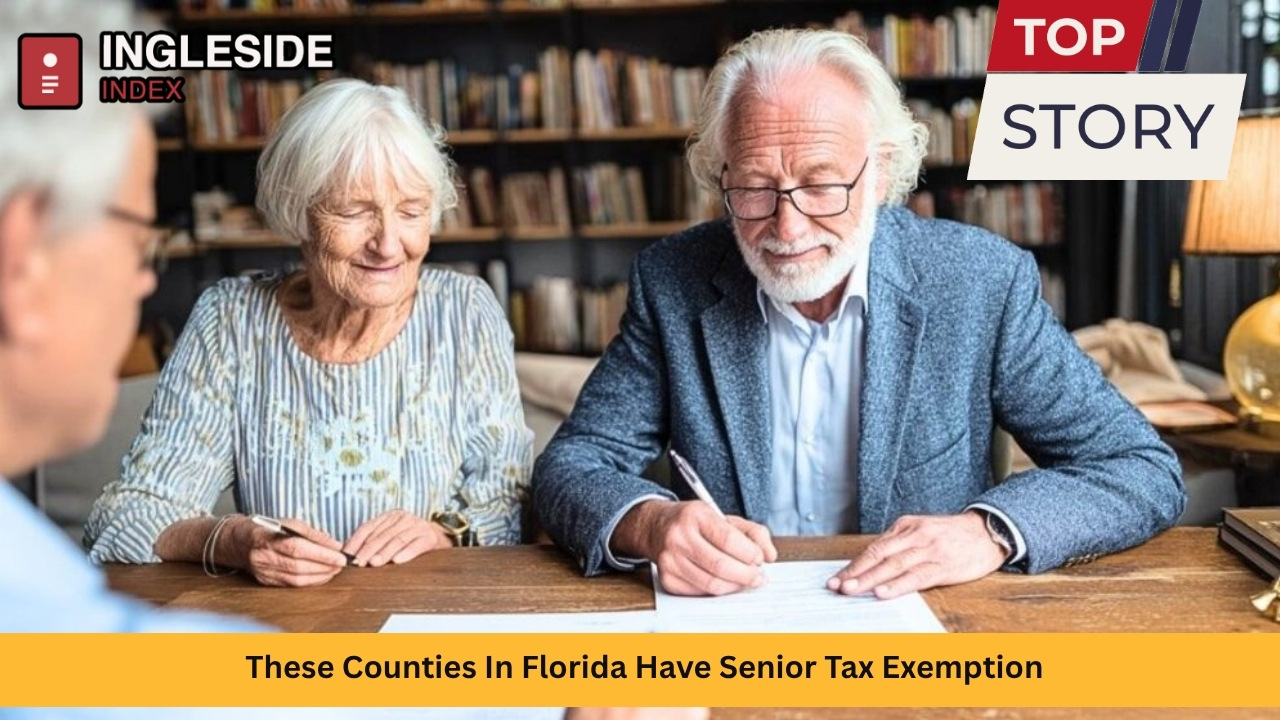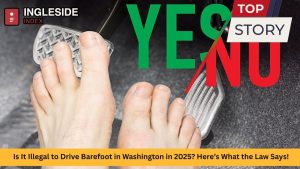Retiring in Florida is a dream for many, and one of the key benefits for seniors in the Sunshine State is the range of property tax exemptions designed just for them. With a large population of residents aged 65 and older, Florida has tailored its tax policies to help ease the financial pressures for seniors, especially those living on a fixed income. Across the state, counties and certain cities offer significant property tax exemptions that can lead to thousands of dollars in annual savings for eligible homeowners. This guide examines which counties in Florida provide these senior exemptions, the requirements, how they work, and which cities offer even more specialized benefits.
Understanding Senior Tax Exemptions in Florida
Florida’s property tax system gives counties and municipalities the discretion to adopt additional homestead exemptions for senior residents. These exemptions generally benefit homeowners who are at least 65 years old, with specific rules varying locally regarding income limits, property values, and time of residency. The aim is to make it easier for seniors to remain in their homes and communities as they age.
Types of Senior Exemptions
There are two main types of senior property tax exemptions commonly offered in Florida:
-
Additional Homestead Exemption: Typically up to $50,000 off the assessed taxable value of a homestead, subject to income limits.
-
Long-Term Resident Senior Exemption: For seniors who have lived in their home for at least 25 years and have a property valued below a threshold, often resulting in a full exemption from certain county or city taxes.
These benefits only apply to the property taxes levied by the entity offering the exemption (usually a county or city), not to school taxes or other independent taxing bodies.
Eligibility Criteria for Senior Exemptions
While the specifics can vary by location, the most common requirements include:
-
At least one homeowner must be 65 or older as of January 1 of the tax year.
-
The property must be the applicant’s primary residence and qualify for Florida’s base homestead exemption.
-
Household income must fall under a set limit, which is updated annually for inflation. For 2025, this limit generally hovers near $37,700.
-
For the Long-Term Senior Exemption, the applicant must have lived in the home for at least 25 years, and the property’s just value (market value) must be under $250,000.
Counties in Florida Offering Senior Tax Exemptions
Below is a county-by-county overview, highlighting prominent areas where senior tax exemptions have been adopted and outlining their unique features and benefits.
Miami-Dade County
Miami-Dade County offers a layered senior exemption program. Qualifying seniors 65 or older can receive an additional $50,000 exemption if their household adjusted gross income is under the annual limit. A further exemption—potentially removing all county property tax—applies to seniors meeting the long-term residency and property value thresholds. Major cities such as Miami, Coral Gables, Miami Beach, and Aventura also participate, extending these tax benefits to thousands of homeowners.
Broward County
Broward County provides an additional senior exemption of up to $50,000. Cities like Fort Lauderdale, Hollywood, Pembroke Pines, and Coral Springs also offer local senior exemptions, with eligibility set by age and income. Some municipalities, such as Weston and Plantation, have adjusted their amounts or added long-term resident programs.
Palm Beach County
Palm Beach County has a tiered system based on city participation. County-wide, a $25,000 exemption is available, while cities such as Wellington, Jupiter, Haverhill, and Loxahatchee Groves offer up to $50,000. Other cities, including Boynton Beach and Delray Beach, provide smaller exemptions or additional long-term residency benefits for those meeting stricter stay-in-place requirements.
Palm Beach County: Senior Exemption Breakdown (Sample)
| City | Senior Exemption Amount | Long-Term Resident Exemption |
|---|---|---|
| Haverhill | $50,000 | Yes (if eligible) |
| Wellington | $50,000 | Yes |
| Boynton Beach | $25,000 | Additional for 25+ years residency |
| Palm Beach Gardens | $25,000 | Available |
| Lake Park | $10,000 | No |
| Greenacres | $5,000 | No |
Pasco County
Pasco County is widely recognized for its senior-friendly property tax policy. Seniors who meet the income criteria and own their permanent residence can get an extra $50,000 exemption on top of standard homestead relief. Local officials have praised the program for helping residents keep their homes as living costs rise. The exemption applies only to the portion of taxes controlled by county government.
Volusia County
Volusia County offers both the $50,000 additional homestead exemption for seniors and a special exemption for those who have lived in their home for at least 25 years, with a just value under $250,000. Cities such as DeBary, Deltona, Holly Hill, New Smyrna Beach, and Ponce Inlet have adopted the long-term residency exemption.
Nassau County
Nassau County, encompassing cities like Fernandina Beach and Callahan, has adopted the $50,000 additional exemption for qualified seniors. Residents must submit proof of income, such as Social Security statements or federal tax returns, to demonstrate eligibility each year.
Martin County
Martin County offers a $25,000 exemption county-wide, while the Village of Indiantown recently raised its exemption for seniors to $50,000. These exemptions apply only to county and municipal taxes, not to the school district portion.
Monroe County
Monroe County, including popular retirement areas like Key West and Marathon, provides the $50,000 senior homestead exemption as well as the long-term residency option. Seniors must provide proof of age and income to the Property Appraiser’s office and must have resided in their home for at least 25 years for the long-term benefit.
Other Participating Counties
Many other Florida counties have adopted at least the basic $25,000–$50,000 additional exemption for low-income seniors, including:
-
Hillsborough County (Tampa, Plant City, and Tampa suburbs)
-
Pinellas County (St. Petersburg, Clearwater, Largo)
-
Lee County (Fort Myers, Cape Coral, Bonita Springs)
-
Orange County (Orlando, Apopka, Winter Garden)
-
Seminole County (Sanford, Altamonte Springs, Oviedo)
-
Manatee County (Bradenton, Palmetto)
-
Sarasota County (Sarasota, Venice, North Port)
-
Charlotte County (Punta Gorda, Port Charlotte)
In each case, specific rules and eligible cities or taxing authorities may differ, so senior homeowners should consult their local property appraiser’s website for the latest info.
How Much Do Seniors Save?
The practical benefits of these exemptions depend on the assessed value of the home and local millage rates. However, the math is clear: in a county where the additional $50,000 exemption is adopted and the millage rate is around 10 mills, a senior could save $500 each year just from the senior exemption alone—and thousands more if they qualify for the long-term resident program that eliminates county taxes entirely.
In Palm Beach County, city and county exemptions of $10,000 to $50,000 are common. In Pasco and Volusia, qualifying seniors may save upwards of $1,000 to $2,000 annually if they meet all the criteria for combined exemptions.
Florida’s overall approach to senior property tax relief means that a significant share of the state’s nearly 4.7 million residents aged 65 and older can access property tax reductions, helping seniors stay in their homes as they age.
Notable City Exemptions and Variations
The flexibility in Florida’s tax code allows individual cities to set their own amounts and eligibility requirements. This leads to wide variations in exemptions across cities, even within the same county. Some examples:
-
In Miami-Dade, cities like Miami Beach and Coral Gables offer the full $50,000 exemption.
-
In Broward County, Hollywood and Pompano Beach provide both the senior and long-term residency exemptions.
-
Jupiter and Wellington in Palm Beach County grant the highest exemption allowed.
-
In Volusia, DeBary and New Smyrna Beach have adopted both the senior and 25-year residency exemptions.
-
Boynton Beach stands out for offering enhanced “super senior” tax breaks to residents who have lived in the same property for over 25 years.
It’s important for seniors to check not only county rules but also their specific city to maximize their property tax savings.
How to Apply for Senior Tax Exemptions
Applying for the senior homestead exemption generally involves submitting an application to the county property appraiser’s office by March 1 each year. Seniors will need to provide:
-
Proof of age (valid driver’s license, passport, or birth certificate)
-
Income verification for all household members (IRS Form 1040, Social Security statements)
-
Evidence of permanent residency and duration (for long-term exemptions)
Documentation requirements may differ between counties. In most places, you only need to apply once and provide updated income information in subsequent years. Missing the March 1 deadline could mean waiting another year for the benefit.
The Economic Impact of Senior Tax Exemptions
Senior property tax exemptions not only help individual homeowners but also have a broader impact on Florida’s communities. By allowing seniors to stay in their homes longer, these policies support neighborhood stability, reduce reliance on rental housing, and help strengthen the fabric of local life. State and local officials estimate the exemptions help tens of thousands of seniors remain in place every year.
With Florida’s senior population projected to grow as Baby Boomers continue to retire, these tax exemptions have become a key element of local public policy. In 2025, it’s estimated that more than 600,000 Florida households headed by someone 65 or older will claim a senior exemption, collectively saving hundreds of millions in property taxes.
Common Questions about Senior Property Tax Exemption
Can seniors in all counties receive tax exemptions?
No, not every county or municipality in Florida adopts the senior exemption, but the majority do. The ultimate amount and eligibility can differ widely, so it’s essential to verify with your county property appraiser.
Do these exemptions apply to school taxes?
No, senior tax exemptions typically apply only to the taxes levied by the county or city granting the exemption—not to the portion of property taxes that go to public schools.
Is the income limit the same everywhere?
The Florida Department of Revenue sets the annual maximum income limit, but this is adjusted for inflation and may be interpreted slightly differently by each county. For 2025, the threshold is around $37,700.
Is there an additional benefit for veterans or the disabled?
Florida offers separate and sometimes overlapping exemptions for veterans or seniors with certain disabilities. Eligibility criteria and savings can be even higher for these groups.
Examples of Florida Cities with Senior Exemptions
The following table summarizes select cities in Florida and their senior exemption status:
| City | County | Senior Exemption | Long-Term Residency (25+ yrs) | Noted for |
|---|---|---|---|---|
| Miami | Miami-Dade | $50,000 | Yes | Major city participation |
| Orlando | Orange | $50,000 | Yes | Accessible in metro Orlando |
| Tampa | Hillsborough | $50,000 | Yes | Countywide adoption |
| Fort Lauderdale | Broward | $50,000 | Yes | Urban and suburban benefit |
| West Palm Beach | Palm Beach | $25,000 | Yes | Tiered by city |
| Naples | Collier | $50,000 | Yes (some areas) | High retiree population |
| Sarasota | Sarasota | $50,000 | Yes | Both county and city |
| Daytona Beach | Volusia | $50,000 | Yes | Popular with retirees |
| Key West | Monroe | $50,000 | Yes | Supports aging in place |
| St. Augustine | St. Johns | $50,000 | Yes | Expanding for aging population |
Navigating Local Differences
While the majority of Florida’s counties and many cities offer senior exemptions, the details can be complicated. For example, within one county, some cities may provide higher exemptions or more generous long-term residency benefits than others. Residents in Palm Beach County’s Wellington or Jupiter see greater relief than those in Lake Park or Greenacres, where smaller exemptions are in place.
Seniors are encouraged to consult their local property appraiser’s website for details, as annual updates to income caps and program rules can affect eligibility. Many county offices hold workshops or outreach programs in the spring to help seniors understand and apply for exemptions.
Conclusion
Florida’s senior property tax exemptions represent a meaningful and practical way to support older adults who wish to remain part of their communities. Nearly every part of the state—from the metropolis of Miami to the historic streets of Key West to the retirement havens of Palm Beach and Sarasota—offers some form of property tax relief for seniors.
By reducing property taxes for older, income-limited residents, these counties and cities enable many Floridians to enjoy a secure retirement in their own homes. For those considering retirement in Florida or aging in place, understanding the local senior tax exemption landscape can provide peace of mind and potentially thousands in annual savings.
Seniors, their families, and their advisors should review the rules regularly, as both county and city participation in these programs grows each year. If you or a loved one may qualify, reach out to your local property appraiser and take steps to ensure all benefits are received—because in Florida, aging in place is more affordable when you know your property tax options.
Helpful Links
- https://floridarevenue.com/property/Documents/pt110.pdf
- https://ncpafl.com/exemptions-classifications/senior-citizen-exemption/
- https://www.miamidadepa.gov/pa/exemptions_homestead_senior.asp
- https://www.mcpafl.org/senior-citizen-exemption/
- https://vcpa.vcgov.org/exemption/senior
- https://www.tododisca.com/en/good-news-65-year-olds-floridas-tax-benefits-2025/
- https://www.youtube.com/watch?v=IClx0VKbKd0
- https://www.pascocountyfl.net/_T18_R51.php
- https://pascopa.com/exemptions/senior/
- https://floridarevenue.com/TaxLaw/Documents/PTO%20BUL%2021-05%20Homestead%20Exemption%20for%20Seniors%2065%20and%20Older.pdf
- https://www.pbcgov.org/papa/limited-income-senior.htm
- https://pbcpao.gov/limited-income-senior.htm
- https://www.flsenate.gov/laws/statutes/2018/196.075
- https://bcpa.net/senior_instructions.asp
- https://ocpaweb.ocpafl.org/faqcontent/exemptions
- https://www.flsenate.gov/laws/statutes/2021/196.075
- https://www.pa.martin.fl.us/other-exemptions/senior-exemptions
- https://www.manateepao.gov/data/downloads/2025%20LIS%20Brochure.pdf
- https://www.flsenate.gov/Committees/billsummaries/2021/html/2330
- https://floridarevenue.com/property/Pages/Taxpayers_Exemptions.aspx




